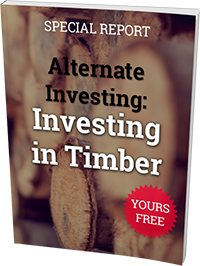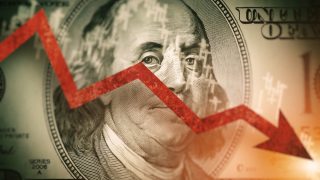By James Oates, guest contributor
Toomas Hendrik Ilves is in a fightin’ mood.
After 20 years as a journalist with Radio Free Europe, this Leonia, N.J., native son came back to Estonia, the land his parents were forced to flee when the Soviets invaded during World War II.
He did well. Very well.
In fact, he has been the president of this small nation on the Baltic Sea since October 2006, and was re-elected for a second and final term just last year.
Yet none of that made the headlines in the United States.
What has attracted American attention has been a series of tweets he made after economist Paul Krugman seemed to “dis” Estonia’s policy of austerity and published a graph that seemed to show that Estonia had not really done that well, since it showed a U-shape growth curve, despite Estonia having no real government debt and a significant government budget surplus.
Whoops.
Talk about selecting your data.
Krugman had simply showed the latest few years — and not the incredible growth in the 20 years since Estonia adopted a radical, free-market approach to fix the mess left by 40 years of Soviet occupation. In the post-Soviet era, the country has grown roughly five times richer, so even the sharp recession of 2008-10 was just a hiccup by comparison.
No wonder President Ilves was not too impressed, tweeting on @IlvesToomas: “Guess a Nobel in trade means you can pontificate on fiscal matters & declare my country a ‘wasteland.’ Must be a Princeton vs. Columbia thing.”
And Ilves was right to be mad. Estonia has been the pioneer in simple and efficient government administration. The cost of the country’s administration is a fraction of any other western nation. The combination of a simple flat tax regime (with 0% corporation tax on undistributed profits) and a highly automated and secure e-government system mean that over 98% of tax returns are made online. Because the tax system is transparent, people pay their taxes: no need for offshore settlements and no need for complicated tax-avoidance schemes. Meanwhile, the country has amassed borrowings of 6% of gross domestic product (GDP) — and the good news does not end there. Over the same period, Estonia has amassed reserves that amount to about 11% of GDP. That’s right; Estonia’s government has no net debt. Meanwhile, the government continues to run a slight surplus for this Nordic nation — not the sea of red ink that besets most other members of NATO and the European Union (EU). Yet despite this focus and discipline, the country has resumed the kind of high single-percentage growth that has been the norm since the Soviets were thrown out 21 years ago.
Estonia is the poster child for precisely the kind of fiscal discipline that Paul Krugman says won’t work; except, of course, fiscal discipline does work.
Meanwhile, by contrast, Steve Forbes is just the latest American public figure to come to Estonia and personally see what actually is happening on the ground. He came to launch the latest Estonian-language version of Forbes magazine. The fact that there is a sufficient market for this magazine in a nation not much bigger in population than Rhode Island tells you a lot about how Estonians look at the world.
Of course, Steve Forbes is not just interested in a new market for Forbes magazine. In many ways, his ideal flat tax economy already exists here. Don’t tell the Internal Revenue Service, but the Estonian tax authority regularly gets more than 75% approval for the way it conducts its business. Steve Forbes made the point in a press conference that Estonia now already is opening a growth gap, not just over the profligate states of the EU’s Club Med, but even over countries like Germany, which preach discipline, but don’t always practice it. What he did not mention is that simple taxes are not just efficient, they are popular, too.
So, what is the lesson from this prodigal Baltic state?
Firstly, as Paul Krugman discovered, the Internet is not a forgiving place to those who put out misleading data. Estonia, as the home of Skype, was always a place where techno-literate people are more likely to jump on a guy who was ignoring critical facts simply to support his rather flimsy arguments.
The fact that the guy who called Paul Krugman out on his misleading data was the president and that he did it on Twitter was more noteworthy in the United States than it would be in Estonia, where political leaders are far more accessible.
Secondly, the fact is that keeping control of public finances may have been really hard on growth as the recession hit, but it has significantly improved the Estonian added value now that the economy is recovering. The public sector remains leanly staffed and generally pretty efficient.
Thirdly, with governments, as with business, the oldest rule is still the best: Keep it simple.
So, how to find opportunities?
Obviously, there is not too much on the debt market, naturally; and in any event, Estonia is only rated two notches below the U.S. government by the debt rating agencies.
The equity market is still pretty small, so opportunities for public investment in this pretty small market are few and far between, and generally, fully priced. Mind you that I would look at a couple of larger local equities, like local property developer Arco Vara (ARC1T) or Tallinna Vesi AS, as potential investments.
Most of all, I would watch some of the private equity vehicles, like BaltCap, when they return to the market next year. Estonia is going places but it still makes sense to get in alongside the start-ups, if you want to invest in the country.
James Oates is a seasoned Central and Eastern European (CEE) finance professional who is CEO of Cicero Capital, a regional investment firm based in Tallinn, Estonia. He also is a member of the council of Limestone Funds, a specialist asset management business active across CEE. Previously, Oates headed Eastern European Equities at UBS and Lazard, and has invested as a fund manager in the region for Flemings Investment Management, after starting his career in corporate finance at J.P. Morgan. In the past, Oates has been rated as a number one analyst by Greenwich Investors and Institutional Investor magazine. Oates, who appears regularly on CNBC Squawkbox, CNN , BBC and Bloomberg Television, was decorated by President Ilves in 2007 with the Order of the Cross of Terra Mariana, Estonia’s highest national order.
Sincerely,

Nicholas A. Vardy
Editor, The Global Guru



